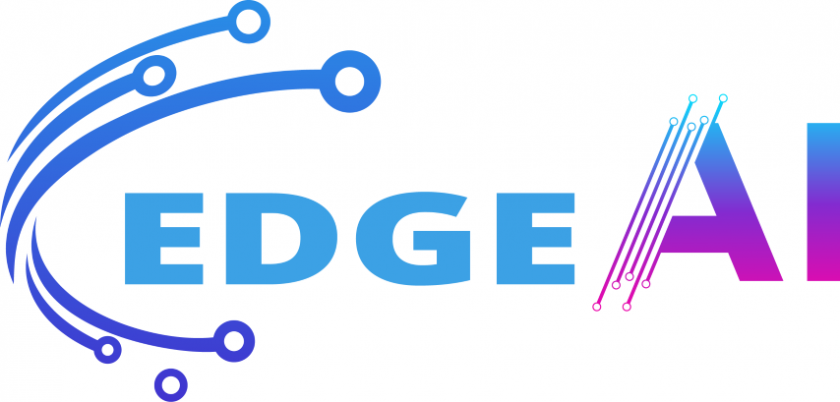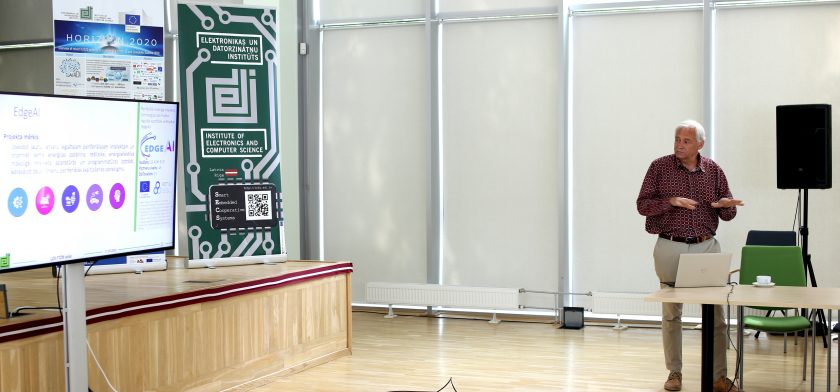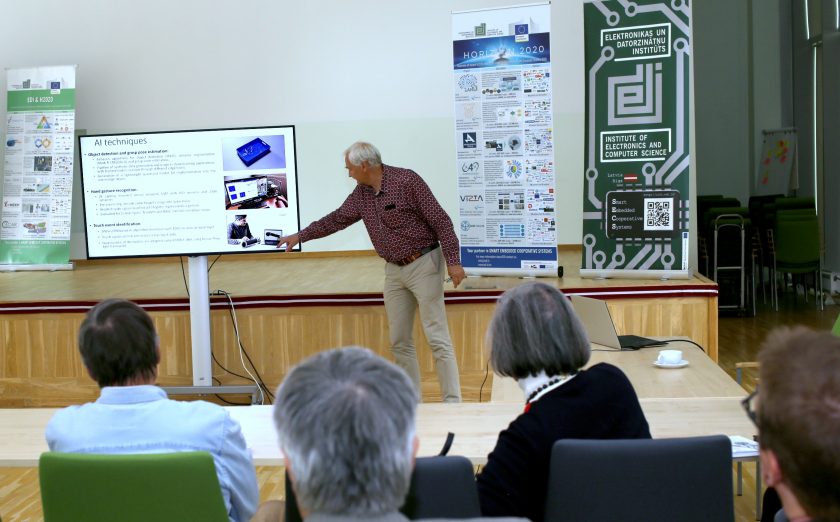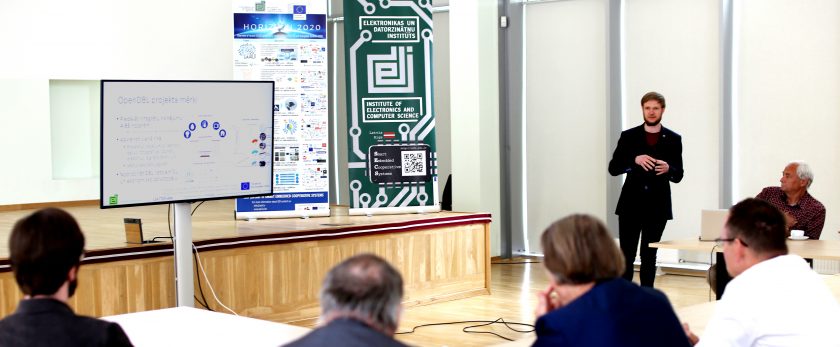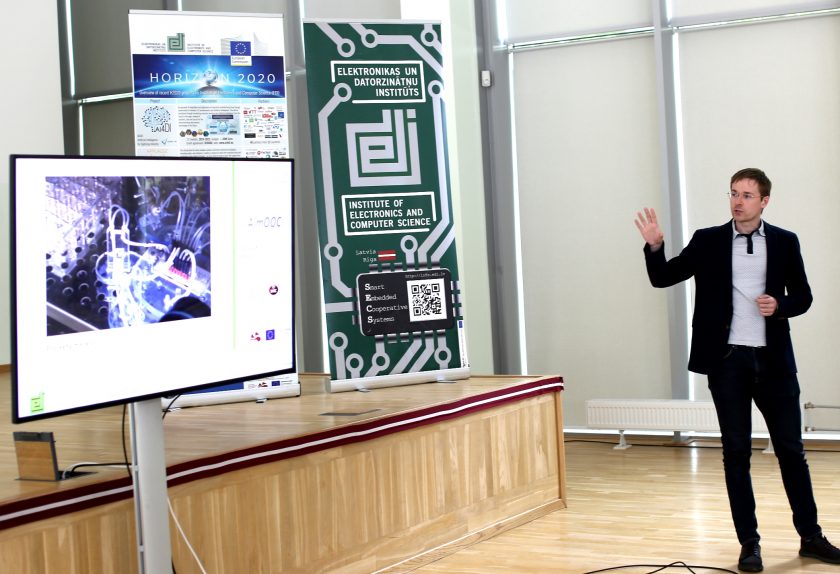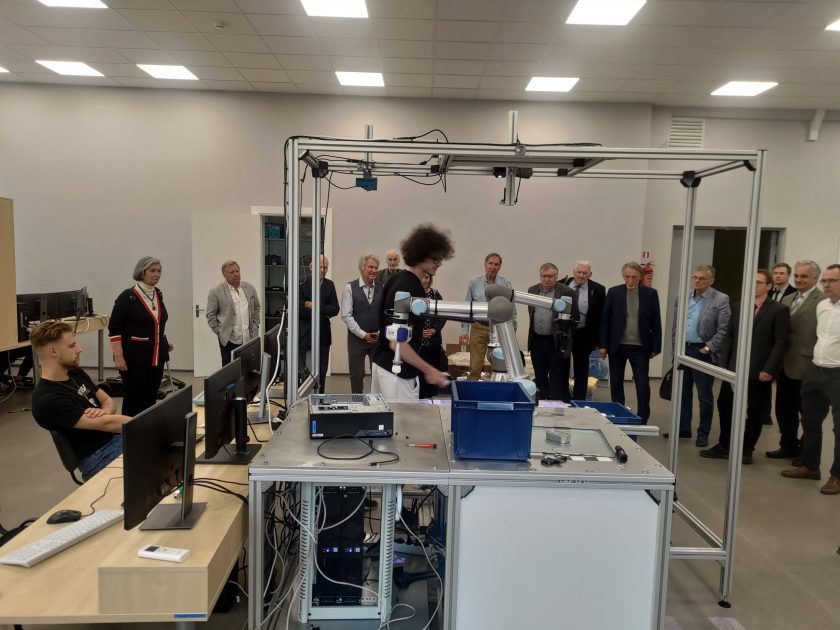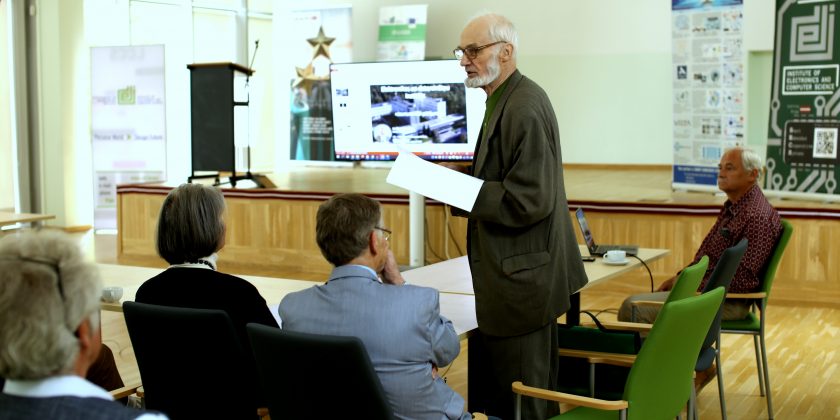
On 17 May 2023, the Latvian Academy of Sciences (LAS), Division of Physics and Technical Sciences, held a retreat at the Institute of Electronics and Computer Science (EDI), 14 Dzērbenes Street. The Division brings together 111 members of the Latvian Academy of Sciences, including 40 full members, 2 honorary members, 31 foreign members and 38 corresponding members.
Dr Modris Greitans, Director of the EDI, who is an academician of the LAS and a member of the Council of the Division of Physical and Technical Sciences, gave an overview of the success of the EDI in creating new technologies and of the cooperation with Latvian and foreign partners. He highlighted the various opportunities for cooperation, training, scientific advice provided by the Institute.
Dr.sc.comp. Modris Greitāns went into more detail about the EDGE AI project. The project involves 44 partners from different countries.
In this project, EDI leads the mobility value chain (VC4 mobility) and two demonstrators of this value chain, VCD4.1 – “Cognitive Mobile Multi-Agent Platform” and VCD4.2 – “Roadside Perception Units Connected with a LoRa 2.4 GHz Mesh Network”.
Dr.sc.comp. Modris Greitans also explained the implementation of the Horizon2020 project “Artificial Intelligence for Digitalisation of Industry (AI4DI)” and that EDI scientists have created an industrial robotics solution that is able to perceive and interpret the environment, as well as interact with objects and people in it.
A number of project leaders presented their main projects, explained innovative technologies and answered questions.
Oskars Teikmanis explained the Fifth Generation (5G) Connected and Automated Mobility EU Cross-border Trials (5G Routes) project, which aims to develop 5G communication solutions for cooperative traffic, logistics and passenger entertainment applications.
Dr. sc. comp Atis Elsts talked about the PRAESIIDIUM project, which aims to develop a tool to provide real-time prediction of an individual’s prediabetes risk. The prediction algorithm will be based on a physics-based machine learning approach.
Researcher Mg. sc. comp. Jānis Judvaitis explained about the project “Open One Step DBL Solution (openDBL)”.
As part of the project, EDI is researching and developing a IoT platform that will be able to process large amounts of data (energy consumption, external and internal temperature, number of people, etc.) to understand the behaviour and trends of people in a building and provide recommendations on how to reduce energy consumption. To achieve this, it is planned to use EDI in a large-scale 100+ node IoT testbed.
Dr. sc. ing. Roberts Kadiķis presented the project “Culturing organs on a chip with artificial intelligence methods for personalised medicine”. (AimOOC). This project aims to apply machine learning (ML) to microfluidics based on real-time data from reflected light microscopy, TEER (Trans Epithelial Electric Resistance) and O2 biosensors to grow different cell cultures including those obtained from patient samples, on the OOC platform.
In the second part of the event, the participants of the Latvian Academy of Sciences’ Department of Physical and Technical Sciences’ retreat were introduced in person to one of the LAS’ most significant achievements of 2022, “Intelligent robot with advanced vision, sensing and human gesture understanding capabilities”, created by LAS full member Dr.sc.comp. M. Greitans, Mg.sc.ing. J. Arents, Mg.sc.comp. P. Raczynski (Institute of Electronics and Computer Science (IECS)) together with B. Debaillie (IMEC, Belgium), P. Kostka (Technical University of Dresden, Germany) and B. Lesser (Virtual Vehicle Research GmbH, Austria).
In addition to the demonstrated achievement, the participants were also introduced to the Institute’s future plans for robotics research.
